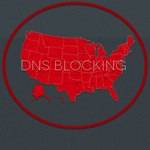One of the co-authors of the Protect IP Act (PIPA) in the U.S. Senate has said that he will make a manager’s amendment to the bill to strike out the section where Internet Service Providers will be required to block a foreign website found to be infringing on copyrighted content. The bill’s sponsor, Sen. Patrick Leahy (D – Vt.), said yesterday that the DNS blocking portion of the bill may be stricken before it comes to a vote on the Senate floor Jan. 24. While this could be a big win for SOPA/PIPA opponents, there is still plenty in the bill that is detrimental to the Internet ecosystem.

Specifically, Leahy is talking about Sec. 3 of PIPA (S.968 in U.S. Senate parlance). That section is titled: Enhancing Enforcement Against Rogue Websites Operated and Registered Overseas. The most pertinent section regarding the ISPs is in article (d), “Required Actions Based on Court Orders”:
IN GENERAL- An operator of a nonauthoritative domain name system server shall take the least burdensome technically feasible and reasonable measures designed to prevent the domain name described in the order from resolving to that domain name’s Internet protocol address, except that…
The removal of said clause in Sec. 3 of PIPA would effectively cripple the entire section of the bill because that is the most active part, the means of taking down the alleged copyrighted website. Sec. 3 is important because it is the foundation for a good portion of the bill.
What else is worrisome about PIPA? Oh, let’s say… every other section.
Sec. 4, titled “Eliminating the Financial Incentive to Steal Intellectual Property Online,” contains several of the same proposals as the Stop Online Privacy Act in Congress. Notably, the ability of the Attorney General to issue an order for online payment processors and advertisers to stop doing business with allegedly infringing sites. From Sec. 4 article (d):
(2) REASONABLE MEASURES- After being served with a copy of an order pursuant to this subsection:
(A) FINANCIAL TRANSACTION PROVIDERS- A financial transaction provider shall take reasonable measures, as expeditiously as reasonable, designed to prevent, prohibit, or suspend its service from completing payment transactions involving customers located within the United States and the Internet site associated with the domain name set forth in the order.
(B) INTERNET ADVERTISING SERVICES- An Internet advertising service that contracts with the Internet site associated with the domain name set forth in the order to provide advertising to or for that site, or which knowingly serves advertising to or for such site, shall take technically feasible and reasonable measures, as expeditiously as reasonable, designed to–
- (i) prevent its service from providing advertisements to the Internet site associated with such domain name; or
- (ii) cease making available advertisements for that site, or paid or sponsored search results, links, or placements that provide access to the domain name.
Eliminating the language from Sec. 3 supports the ISPs, such as cable operators Comcast and Cox, which support the bill though have objections to that particular clause. Yet, Sec. 4 remains would remain in the bill. Sec. 4 effects online advertisers like Google and payment processors like eBay/PayPal, both of which oppose PIPA. Essentially, Leahy is placating the bill’s supporters while still imposing upon its opponents.
Looks like politics as usual in Washington.
Sec. 5 of PIPA outlines how payment providers and advertisers can voluntarily comply with Sec. 4 meaning that they can be proactive in shutting down payment options to alleged sites. Sec.6/7 defines the clauses and evaluation aspects of the bill. Sec. 8, the last section of the bill, has a particularly troubling clause.
Sec. 8 – “Preventing the Importation of Counterfeit Products and Infringing Devices.” Note the term “infringing devices.” Essentially, what the bill says is that products with have been ruled to infringe on intellectual property will be seized by customs.
Think about this for a second. What is the largest technology company in the world? What products does it make? What is its legal arm doing in U.S courts and around the world?
That would be Apple. Apple is raging a patent battle against nearly all of the original equipment manufacturers that build Android devices. All Apple has to do is win a patent suit against the OEMs and Sec. 8 would effectively stop the importation of the “infringing” devices. Apple has not made an official statement on whether or not it supports SOPA/PIPA but it was part of the Business Software Alliance that had originally supported the bills. The BSA officially withdrew its support citing, “valid and important questions have been raised about the bill.”
What it comes down to is that PIPA is still a bill that could stifle and censor innovation on the Web, even without the teeth of Sec. 3. Will Leahy’s “manager’s amendment” be enough to placate the opponents and push it through the Senate?

















